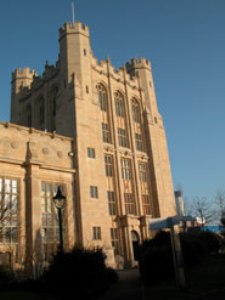A new research from the University of Bristol and the Institute of Photonic Sciences (ICFO) in Barcelona has confirmed that using measurement data, the dimension of an unknown quantum system can be evaluated.
 The HH Wills Physics Laboratory at the University of Bristol
The HH Wills Physics Laboratory at the University of Bristol
Researchers generally believe that a physical system has a specific dimension. This assumption is made due to the theoretical models which are used to explain experimental observations on such a system.
ICFO scientists, including Dr Martin Hendrych, were eager to find the experimental possibility of estimating the dimension of a completely unknown system.
Dr Nicolas Brunner in Bristol’s School of Physics, co-author of the research, stated that using polarization and orbital angular momentum degrees of freedom, photons were prepared in quantum states of various dimensions. Later, several possible measurements were done on these photons. The researchers then tried to determine the dimension of photons from the frequencies. A mathematical tool 'dimension witness' designed to estimate the dimension of an unknown system was used for this purpose.
The quantum nature of a system can also be confirmed by dimension witnesses while assuming knowledge about its dimension. In this observation, the quantum systems perform well than the classical ones.
For information processing, this 'quantum advantage' may prove quite useful. New approaches to cryptography and creating haphazard numbers according to the concept of dimension witnesses have been suggested by recent proposals. This work could make a significant impact in quantum information science, wherein the dimension signifies a powerful resource.
The characterization of unknown quantum systems can also be done since this work represents the device-independent quantum data and does not make any assumptions on the measuring device employed in the protocol.
A demonstration was given by Dr Hendrych and colleagues to use this device-independent approach for estimating the dimension of an unknown system experimentally. It is predicted that this will find significant applications in the fields of quantum technologies and quantum data, where the assessment of quantum systems is a vital task.